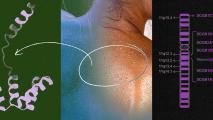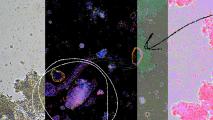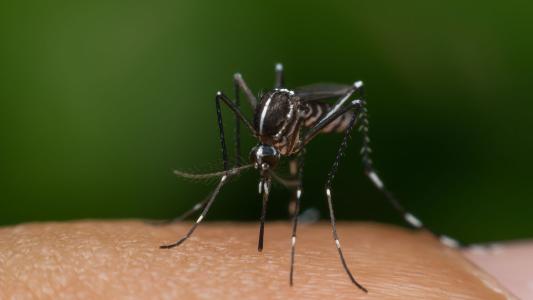An inhaled vaccine provided better protection against tuberculosis than one delivered via a nasal spray, according to a new study — and the knowledge could change the way we vaccinate against COVID-19 and other respiratory diseases.
Special delivery: Vaccines teach the immune system to recognize a pathogen before it actually infects a person. If the person is later exposed to the pathogen, the immune system will stop it before an infection can take hold.
“The immune response you generate when you deliver the vaccine deep into the lung is much stronger.”
Matthew Miller
Vaccines can be delivered in several ways, and for a newly published study, researchers at Canada’s McMaster University compared the efficacy of nasal sprays and inhaled aerosols as a delivery method for a TB vaccine in mice — and the inhaled vaccines came out on top.
“The immune response you generate when you deliver the vaccine deep into the lung is much stronger than when you only deposit that material in the nose and throat because of the anatomy and nature of the tissue and the immune cells that are available to respond are very different,” said study co-author Matthew Miller.
Why it matters: Inhaled vaccines aren’t as common as nasal sprays, but the knowledge that they may be more effective against respiratory diseases could prompt researchers to consider them when developing new vaccines or looking for ways to boost the efficacy of existing ones.
“This study for the first time provides strong preclinical evidence to support the development of inhaled aerosol delivery over nasal spray for human vaccination against respiratory infections including TB, COVID-19, and influenza,” said study co-investigator Zhou Xing.
Looking ahead: The new study doesn’t directly compare aerosols against injections, but the researchers suspect an inhaled vaccine they’re developing for COVID-19 will provide better protection against infection than the shots currently available.
“What we’ve discovered from many years’ research is that the vaccine delivered into the lung induces all-around protective respiratory mucosal immunity, a property that the injected vaccine is lacking,” developer Zhou Xing said in February.
“This study for the first time provides strong preclinical evidence to support the development of inhaled aerosol delivery over nasal spray.”
Zhou Xing
The new COVID-19 vaccine is currently being evaluated in a phase 1 trial as a booster for people who are already fully vaccinated, which should help determine just how effective it actually is.
It doesn’t have to be more effective than the injected vaccines to be a useful addition to our vaccine arsenal, though — as long as it’s effective enough to be authorized, people who might be afraid of needles or otherwise averse to shots could potentially benefit from it.
Because it requires a smaller dose than an injection, an inhaled vaccine could also trigger fewer adverse effects and potentially cut the cost of inoculation, too — a boon to lower-income countries, especially.
We’d love to hear from you! If you have a comment about this article or if you have a tip for a future Freethink story, please email us at [email protected].






